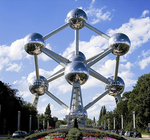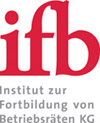 |
|
Welcome to issue no. 2 / 2011 of EWC News. 8th August 2011
|
|
The
training and consultancy network
"euro-workscouncil.net"
EWC
News appears four times a year.
You can find past issues in the newsletter archives.
|
|
1.
New EWC legislation: many countries behind
|
|
The delay for transposing into national legislation was very precisely defined by the new European Works Council Directive. Each of the 27 European Union countries as well as Norway, Iceland and Liechtenstein had until the 5th June 2011 to revise their national legislations. Only 11 of the 30 countries succeeded. Germany was not able to meet the deadline either.
Forerunner was Portugal, where the new EWC legislation came into force already in November 2009 (see report in EWC News 4/2009). In second place came the United Kingdom, where the former labour government brought the new law before parliament in April 2010, a last official act before losing the elections. It came into force unammended as of 6th June 2011 (see report in EWC News 1/2010). In December 2010 Austria followed, where the best EWC act in the whole of Europe was adopted (see report in EWC News 1/2011), and then Belgium with a universally binding collective agreement (see report in EWC News 1/2011).
Norway then followed in January 2011 and in February 2011 Slovakia. Denmark and Bulgaria adopted their new EWC legislation in March 2011 and Spain, Sweden and Latvia in May 2011. In Malta the law came into force on 10th June 2011 a few days late and Ireland followed on 21st July 2011. Legislation has not yet been passed in ten countries but is in its' final legislative stage, including Czech Republic, the Netherlands and Romania. A further six countries are even more behind including Hungary, Poland and Luxembourg.
Germany just two weeks late
The French must remain patient
Italy waits for Berlusconi
First discussions in Switzerland on EWC legislation
Croatia to implement EWC Directive
Is renegotiation of EWC agreements necessary? In every second European works council renegotiation is absolutely necessary in order to benefit from the new standards. Reason: The EU Directive excludes many companies. An article in the June issue of the German technical magazine, “The Works Council”, highlights this question in detail. Workshop on renegotiation of EWC agreements The training and consultancy network “euro-workscouncil.net” is offering the opportunity to prepare for such renegotiation and for an exchange of experience in a workshop to be held from 10th to 12th October 2011 in Wartburg castle in Eisenach (in German language only). |
|
2.
Focus on EWC legal aspects
|
|
35
participants from Germany and France visited the French
capital
from 29th June to 1st July 2011, for an exchange of EWC
working
experience and to inform themsemves about the new legal
situation. Metal and electrical industries were particularly
strongly represented, in addition to the chemical and pharmaceutical
sectors, as well as transport, banking and insurance.
On the first day, two German EWC members presented how transnational restructuring was handled in the automotive supplier Mahle (see report in EWC News 4/2009) and in the heating manufacturer Vaillant (see report in EWC News 2/2010). Afterwards two French EWC secretaries described the recently concluded European-wide restructuring agreements at ArcelorMittal, the steel group (see report in EWC News 4/2009) and at Areva, the energy group (see report in EWC News 1/2011). The participants then discussed in working groups possible strategies for European works councils to promote the conclusion of such agreements. One of the working groups actually developed concrete steps for the metal and electrical industries.
Particularities of certain country legislations
Penalty Provisions under critisism in Germany
Hanna Schelz from the Federal Ministry of Labour highlighted the importance of early involvement of the EWC. The possibility of penalties afterwards is not as useful for the EWC as the use of legal possibilities already upfront. Whether German labour courts will ever go as far as in France, where a court injunction was ruled in the case of Gaz de France (see report in EWC News 1/2008), has to be first proven in practice. Consultation in hostile takeover in France
While the debate on this question is still controversial in the legal professional world, French judges have again come up with an exemplary ruling with explosive repercussions on the European level. The Paris district court ruled, on 26th April 2011, that information and consultation of the European works council must take place prior to that of the national works council. The legal action was taken by the central works council of the French energy group GdF-Suez. In December 2009 the employer presented plans to merge two service units, one of them in Belgium and the other in France. As a consequence of the merger between Gaz de France and Suez the 119 employees of these two units were to be combined into one single unit. The central works council refused to give an opinion arguing that it fell under the responsibility of the EWC. First of all the consultation procedure with the EWC had to be concluded, and only then could the plans be presented to the central works council. This controversy has legal consequences, since in France the employer can only implement its' plans once all consultation procedures have been duly completed.
The judges confirmed the viewpoint of the employee representatives. A similar ruling was already taken in October 2006 for the Hamburg consumer goods group Beiersdorf, when a French court stopped the implementation of plans until the EWC had been involved.
|
|
3. International protest and
solidarity actions
|
|
Despite framework agreement no job security
Despite the signing of a European-wide agreement on job security on 24th February 2011 (see report in EWC News 1/2011) the problems have not been resolved. The EWC is demanding protection against layoffs until 2015 and the entry into the renewable energy business. This could prevent 3,200 job losses announced in October 2010 in the energy division of the French company (see report in EWC News 4/2010). There are also conflicts over planned layoffs in railway vehicule manufacturing, which concern especially the Salzgitter plant.
IBM, the US-computer group is celebrating its' 100 years of existence. On this occasion IBM trade union representatives called for a world-wide action day on 14th June 2011 to demand respect towards all employees in the company throughout the world. In Europe there were actions in Greece, Italy, France, Belgium and Germany. Events outside Europe took place in Australia, Argentina, India and the USA. Employee representatives from 15 countries created a world-wide trade union alliance for IBM on 6th May 2011, a sort of precursor for a world works council.
German Ikea works councils members support US-colleagues
|
|
4. Work councils develop
transnational solutions
|
|
The European works council of Axa, the French insurance company, would like to regulate working conditions in all Assistance centers through a European-wide framework agreement in the same style as the Areva agreement (see report in EWC News 1/2011). A European meeting of employee representatives first took place on the 12th and 13th April 2011 at the headquarters of Axa Assistance in Châtillon near Paris. The situation in Germany, Spain, Belgium, Portugal and France was discussed in detail.
Service centers are characterized by low wages, young personnel and high turnover. Delocalization has taken place, depending on the language, from France to Morocco and from Spain to Argentina. Axa central management announced that it is willing in the future to hold one meeting a year dedicated to the Axa Assistance subsidiaries, which have altogether more than 6,000 employees.
European-wide guidelines on work-related stress
As part of the transformation of the Allianz group into a European Company (SE), in October 2006, the participation agreement explicitly granted the SE works council the right of initiative on topics such as e.g. health and safety. Such provisions are present in numerous SE agreements, but have never yet been used. The Allianz SE can therefore be considered as a pioneer in the development of SE works council activities. The Allianz group guidelines explicity refers to the framework agreement between the European social partners from October 2004. The chairman of the Allianz SE works council, Rolf Zimmermann, will report on the agreement during the seminar for European and SE works councils on 23rd January 2012 in Hamburg.
A transnational collective agreement on profit-sharing was signed on 1st June 2011 in Paris covering all EADS employees in Germany, France, Spain and the United Kingdom. A trade union negotiation group (including representatives from the German group works council) and the European works council were the contracting partners of central management. This is the first agreement based on a procedure which was defined in a European-wide framework agreement from September 2010 (see report in EWC News 3/2010).
With this trade union negotiation group, EADS has established a parallel structure to the EWC, based on the French model of industrial relations. In France works councils are only responsible for information and consultation, while negotiations with the employer are usually reserved for trade unions. The lack of codetermination is one of the reasons for this division of responsibilities. |
|
5. New EWC
agreements
|
|
New EWC in the pharmaceutical industry
On 19th April 2011 an EWC agreement was signed for the mineral water producer, San Benedetto. With 2,300 employees, the company has five production sites in Italy, as well as plants in Spain, France, Poland and Hungary. The headquarters is located in Scorzè in the Veneto region. The new EWC is still subject to the old EWC legislation and may include up to 20 members. The signing parties include representatives from the three major Italian trade union confederations CGIL, CISL and UIL.
French electric motor manufacturer establishes EWC
ST Ericsson the joint venture, founded in 2009 and provider of platforms for smartphones, is to establish an EWC. On the 10th June 2011 an agreement was signed under Swedish law, the first of its` kind since the new EWC legislation came into force. The two parent companies have had their own European works councils for years: the telecommunications systems provider Ericsson since 1995 under Swedish law, and the Franco-Italian semiconductor manufacturer ST Microelectronics since 1999 under Italian law.
The 3,800 employees of ST Ericsson in Europe are to be represented by 17 EWC members. Five of them are from France, four from Sweden, and one each from a further eight countries. They elect a coordinator and a further three members to the steering committee. The employer chairs two annual plenary meetings. While the procedure for information and consultation is based on the new directive, the period for the council to establish an opinion has been limited to two or three weeks.
The texts of the EWC agreements are available for download on a special page.
|
|
6. Examples
from the EWC agenda
|
|
The French supermarket chain, Carrefour, the world's second largest retailer after Wal-Mart, with almost half a million employees (including 120,000 in France), has carried out its first consultation procedure since the establishment of the European works council, in 1996.
An extraordinary meeting of the European works council took place on 24th March 2011, to deal with the spin-off of business activities. The Spanish-French discount chain Dia with 3,700 stores is to be completely sold, as well as a share of 25% of the Carrefour real estate company. The EWC commissioned a consultant to assess the financial and economic consequences of these plans. This was the first ever opinion in the history of the EWC, since there was previously only information, but never consulation.
Tobacco group: New EWC agreement following merger
The 16,600 employees of the merged companies are represented by 41 EWC members. Spain has nine representatives, France six, Germany, and the United Kingdom four, Poland three and the 15 remaining countries one each. The select committee meets three times a year and is made up of eight employee representatives. The EWC, established in 1996, by Imperial Tobacco continues to operate with the status of a "voluntary agreement" under old legislation, however, the standards of the new EWC Directive have been largely integrated. Consultation has been limited to six weeks (four weeks to formulate an opinion and two weeks for central management`s response). There are provisions for a conciliation procedure for problems with time-off for EWC members.
Mining group to sell mineral division
|
|
7.
The SE legal form no longer attractive?
|
|
While the transformation of German companies into the legal form of a European Company (SE) has been on the increase over the past few years, it now seems to be on the decline. On the 1st June 2011, there were 87 SE companies based in Germany. In the first half of 2011 there were only five newcomers, while three companies abandoned. The Hans-Böckler-Foundation speaks of a "market saturation" for this legal form.
Almost half of all European Companies have their headquarters in Germany. One of the reasons for this is the German codetermination. In the course of the transformation of a German company into an SE, it is possible for the company to either reduce the membership of a parity-based supervisory board, to avoid an imminent increase in membership or to “freeze“ for ever the membership to one third. Such cases are relatively often observed in practice. The following documents are available only in German:
Since 28th January 2011, Fresenius, the healthcare company has been trading under the German legal form of KG. Although the SE legal form is still in existence, all of the shares have been transfered to the new company. The SE works council has also been dissolved. Its` role has now been taken on by a "normal" European works council that existed already before the SE transformation (see report in EWC News 2/2007).
In order to avoid the extension of the supervisory board to 20 members, according to the German Codetermination Act, a merger was carried out with an employee-free Dutch company. The 12 member supervisory board has six employee representatives (four from Germany, one each from Austria and Italy). The election of representatives to the new supervisory board was one of the last tasks of the SE works council. In the end, nothing has in fact changed in the composition of the employee delegation.
The use of the EU merger Directive to enable a freezing of the supervisory board is still very rarely seen in practice. One of the first examples was in February 2010 for the food manufacturer Apetito (see report in EWC News 3/2010).
More SE transformations target against codetermination
Aixtron, a manufacturer of systems for the semiconductor industry from Herzogenrath, has been trading since 22nd December 2010 as a SE. By these means, the management of the expanding technology group could ensure that the supervisory board will remain in the future free of participation. With 450 employees in Germany and without transformation to a SE employee representatives would soon have had to be appointed to the supervisory board. Representatives in the special negotiation body came from Britain, Germany and Sweden. With just under the threshold of 2,000 employees, the wind power plant manufactuerer REpower Systems from Hamburg decided against parity-based participation. Since the 15th June 2011, it has been operating as a SE and was therefore able to freeze employee participation in the supervisory board to one third. New, however, is the establishment of an SE works council. Frankish sports goods manufacturer selects one-tier model
The one-tier model is based on the French form of corporate governance, according to which the chairman of the Board of Directors has special powers and executive directors have fewer rights than on a German management board. The probable 30 members of the new SE works council come from 26 countries. At the same time, the PPR European works council (see report in EWC News 4/2008), established in 1999, remains in existence. |
|
8. Highlights from
individual EU countries
|
|
On 1st March 2011 a new sectorial collective agreement comes into force in Denmark, prohibiting social dumping. The small and medium-sized companies of the construction and woodworking industries have committed themselves to only award subcontracted work to companies which are subject to a Danish collective agreement. The minimum wage in this sector was increased to 112,85 Danish Crowns (15,15 euros) and all employers are to contribute immediately into a fund to finance measures against social dumping. The collective bargaining parties have thus proven that they are able to resolve problems independently and do not need to rely on the legislator.
The new collective agreement aimed at preventing the unprecedented conflict that occured, 2004, in Sweden. At that time, Laval, a Latvian company, was building schools in Vaxholm in the vicinity of Stockholm and paid its` Latvian employees Latvian wages. Because Laval refused to comply with the Swedish sectorial collective agreement, Swedish trade unions organised industrial and boycott actions. The subsequent legal dispute went as far as the European Court of Justice which ruled in December 2007 against the Swedish trade unions (see report in EWC News 4/2007).
Improved protection from dismissal for Polish
representatives
The plaintiff was a member of the Solidarność trade union who was dismissed, without notice, after he had informed his employer of the establishment of a trade union section within the company. The change to the Polish Works Council Act which came into effect in July 2009, was also based on a decision of the Constitutional Court (see report in EWC News 3/2009).
Caterer recognizes trade unions as collective bagaining party
Without this framework agreement, local trade unions would have had to fight individually for their recognition. British employers rarely grant such generalised recognition for the entire workforce. As an example Vodafone accepted a collective bargaining representation in October 2007 for only 500 of its` 11,600 British employees (see report in EWC News 3/2007).
The framework agreement is the result of a coordinated campaign of trade unions from six countries: in addition to the British, trade unions from France, the United States and Turkey demanded the right to free trade-union activity around the world. In September 2010, Sodexo came under critiscm from a human rights organization for violation of international labour standards in the United States (see report in EWC News 3/2010). There has been a European works council in the company since 1998, under French law.
|
|
9. The view
beyond Europe
|
|
On the 15th March 2011 Norwegian chemical industry unions and the International federation of chemical trade unions ICEM signed a framework agreement with the central management of Norsk Hydo in Oslo, which guarantees minimum standards for 23,000 employees in 40 countries. Just two weeks later, two Norwegian employee representatives on the supervisory board traveled to Brazil, to provide information on social dialogue and the new framework agreement. Norsk Hydro has recently bought several Brazilian companies.
Employee representatives agree on world-wide action plan for Caterpillar
On 12th July 2011 several trade unions filed an official complaint to the OECD against Deutsche Telekom for the violation of good corporate governance principles. It lists anti-union activities in the United States and Montenegro. As OECD Member States, Germany and the United States have a political and legal responsibility to ensure that these principles are upheld.
Unions accuse central management of double standards when it comes to social responsibility. Deutsche Telekom came under critisicm of a human rights organization in September 2010, because of violations of international labour standards in the United States (see report in EWC News 3/2010). OECD with new guidelines
A few days earlier, on 25th May 2011, the OECD adopted a revised version of its guidelines for responsible business conduct in a global context. What is new is the due diligence of companies for the social situation in the supply chain. |
|
10.
Media for
employee reprentatives
|
|
Video on new EWC legislation from Brussels
Hungarian video on the reasons for an EWC
To celebrate the 110 years existence of FIOM, the metalworkers federation of the largest Italian confederation, CGIL, launched on the 16th June 2011 the FiomNetWork, a communication blog on the Internet. The contents are available on Facebook and Twitter.
The British Trade Union Congress (TUC) started in January 2011 to highlight the rights of precarious workers through a newsletter. The title of the first issue is "Enforcing minimum workplace rights". We have compiled many more interesting links into a collection of links.
|
|
11.
New publications
|
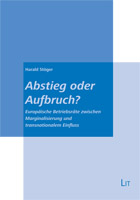  Working
inside European Works Councils – case studies Working
inside European Works Councils – case studies
This 216 page-research work which was published in March 2011, presents the role and influencing power that European works councils have on company management policy. It is based on empirical analysis carried out at the University of Linz, Austria, which examines also the internal operation of the EWC work. Focus was put on European works councils from food processing, construction, paper production, the steel and automotive industries and the pharmaceutical industry. A separate chapter deals with trade union support for European works councils, characterized by growing resource issues and engagement of external consultants. The book is only available in German.
Since 1st May 2011, there is complete freedom of movement on the labour market within the European internal market between Western and Eastern Europe. Only Romania and Bulgaria must wait until 2013 for the last restrictions to fall. In this newly released study, the University of Amsterdam has analyzed the living and working conditions of posted workers, the legal aspects of posting regulations as well as their practical application in 12 countries. A detailed evaluation was also presented by the Friedrich-Ebert Foundation in September 2010.
Activity report of the European Trade Union Confederation (ETUC) 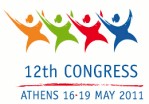 The
12th Congress of the ETUC was held in Athens from 16th to
19th
May 2011 under the motto "Mobilising for a Social Europe". The General
Secretary presented a comprehensive 112 page-report covering the past
four years, and presenting the results of social dialogue at EU level,
a chapter dedicated to European works councils and on the employee
participation in the SE. For the coming years, the "Athens manifesto"
was adopted, setting out the twenty most important priorities. The
12th Congress of the ETUC was held in Athens from 16th to
19th
May 2011 under the motto "Mobilising for a Social Europe". The General
Secretary presented a comprehensive 112 page-report covering the past
four years, and presenting the results of social dialogue at EU level,
a chapter dedicated to European works councils and on the employee
participation in the SE. For the coming years, the "Athens manifesto"
was adopted, setting out the twenty most important priorities.
In June 2011 in Brussels, on the occasion of its 40th anniversary, the EMF released a 33 page book highlighting its history since its creation in 1971. The book is the result of a Hans Böckler Foundation research project. The authors from the Free University of Berlin present the different fields of activity where the Federation is active and provide an insight for the future. The book is available in German, English and French. We have put together further technical literature on a literature website.
|
|
12. Training and consultancy
network "euro-workscouncil.net":
More examples
of our work
|
|
Seminar for European and SE works councils at Montabaur Castle
The restructuring seminar focused on the manner in which information and consultation is handled in French companies. Since the basic philosophy of the EWC Directive is strongly inspired by French industrial relations, German works council members need to see through a pair of "French glasses", to strategically develop their EWC or SE works council. The event will be available again in spring 2012.
The British Dutch steel group Corus (see report in EWC News 4/2009) sold its aluminum division in 2006 to the US group Aleris, who subsequently established its` own EWC in Koblenz. Representatives come from the United Kingdom, Germany, Belgium and Norway. The EWC agreement, signed in May 2007, is subject to German law, and has remained unchanged since then. For this reason, the new German EWC legislation is directly applicable to Aleris.
With the support of training and consultancy network “euro-workscouncil.net“ a proactive communication strategy for the EWC was discussed during the plenary meeting of the EWC held from 11th to 13th April 2011 in Waldburg, Germany. The use of the new German EWC legislation led directly after the meeting to the addition of one British representative to the steering committee, even before the revision of the EWC agreement or the coming into force of the new legislation.
Automotive supplier to close Spanish plant
EWC to use new legal situation for intensive participation
The training and consultancy network "euro-workscouncil.net" has been commissioned as a consultant by the EWC for the information and consultation procedure and has for this purpose put together a German-Spanish team of consultants. Dr. Werner Altmeyer was already appointed as expert for the revision of the EWC agreement in March 2011.
The final report of the REDITER project was presented in Paris on 4th April 2011. In this project, five seminars were held in the course of 2010 in five different countries, to give information on the impact of the new EWC Directive (see report in EWC News 3/2010). Most of the 160 participants came from companies in the service industry. The project was carried out with partners from five countries on behalf of the confederation of service sector trade unions (UNI Europe). The German partner was the training and consultancy network "euro-workscouncil.net". |
|
13.
Current seminar schedule
|
|
The training and consultancy network "euro-workscouncil.net" has been organizing and delivering conferences and training seminars for the members of European works councils, SE works councils and special negotiation bodies since January 2009. So far 253 employee representatives from 121 companies have taken part (representing about 12% of all companies in Europe with an established EWC). The majority of participants came from Germany and France, but a further nine countries were represented. Following is an overview of the planned events:
A German-Belgian seminar for works council members will be held on 29th and 30th September 2011 in Brussels. More than 100 European works councils operate under Belgian law. Belgium therefore stands numerically in fourth place behind Germany, France and the UK. Participants will be able to familiarize themselves during the seminar with the legal situation in Belgium and the Belgian system of employee representation. Simultaneous interpretation will be provided for the event.
Following the coming into force of the new EWC legislation it is advisable in many companies to renegotiate the EWC agreement. To this end we are offering a workshop to enable an exchange of experience and to make a critical analysis of participant’s EWC agreements. The workshop will be held from 10th to 12th October 2011 in Wartburg castle in Eisenach (photo) in German language only.
German-British works council conference in London
English language courses for works council members 13. – 18.11.2011 in Esher Place (near London)
As every year, a two-day conference will be again held in Hamburg. The topics:
Monday, 23rd January 2012: Beyond information and consultation – developing EWC and SE works council into negotiating partners for central management
Seminars of the Institute for Further Education of Works Councils (ifb)
Basic seminar: The European Works Council from A to Z 07. – 11.11.2011 in Munich
Advanced seminar and idea exchange 21. – 25.11.2011 in Stuttgart
In 2011 the training and consultancy network "euro-workscouncil.net" will be organising another SE workshop. Since the number of SE works councils is still relatively small, the next date will be coordinated with any interested participants by telephone. Anybody interested should please fill in and return the following questionnaire.
In-house events Please find a survey of possible subjects of in-house events here: |
|
14. Imprint
|
|
EWC News is published by:
Training and consultancy network "euro-betriebsrat.de" GbR Von-der-Tann-Straße
4, D-20259 Hamburg www.euro-workscouncil.net (English) www.euro-ce.org (French)
Authors collaborating on this issue: Werner Altmeyer, Sandro Maier, Bernhard Stelzl
Distributor of the German version: 15,648 readers Distributor of the English version: 2,157 readers Distributor of the French version: 2,322 readers
Newsletter archive: www.ewc-news.com
We are always pleased to receive comments and suggestions in relation to this newsletter as well as reports on your EWC activities. Please write us at: info@euro-workscouncil.net
|
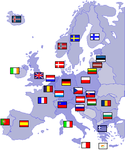
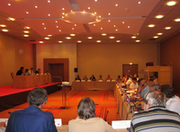









 Italian
Drinks company establishes EWC
Italian
Drinks company establishes EWC




 Number
of SE
creations down
Number
of SE
creations down 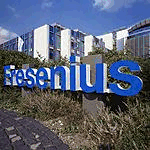


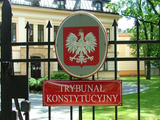








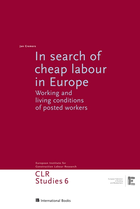
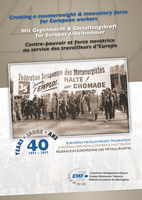
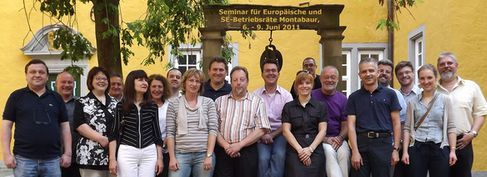


 Final report of the REDITER
project
Final report of the REDITER
project